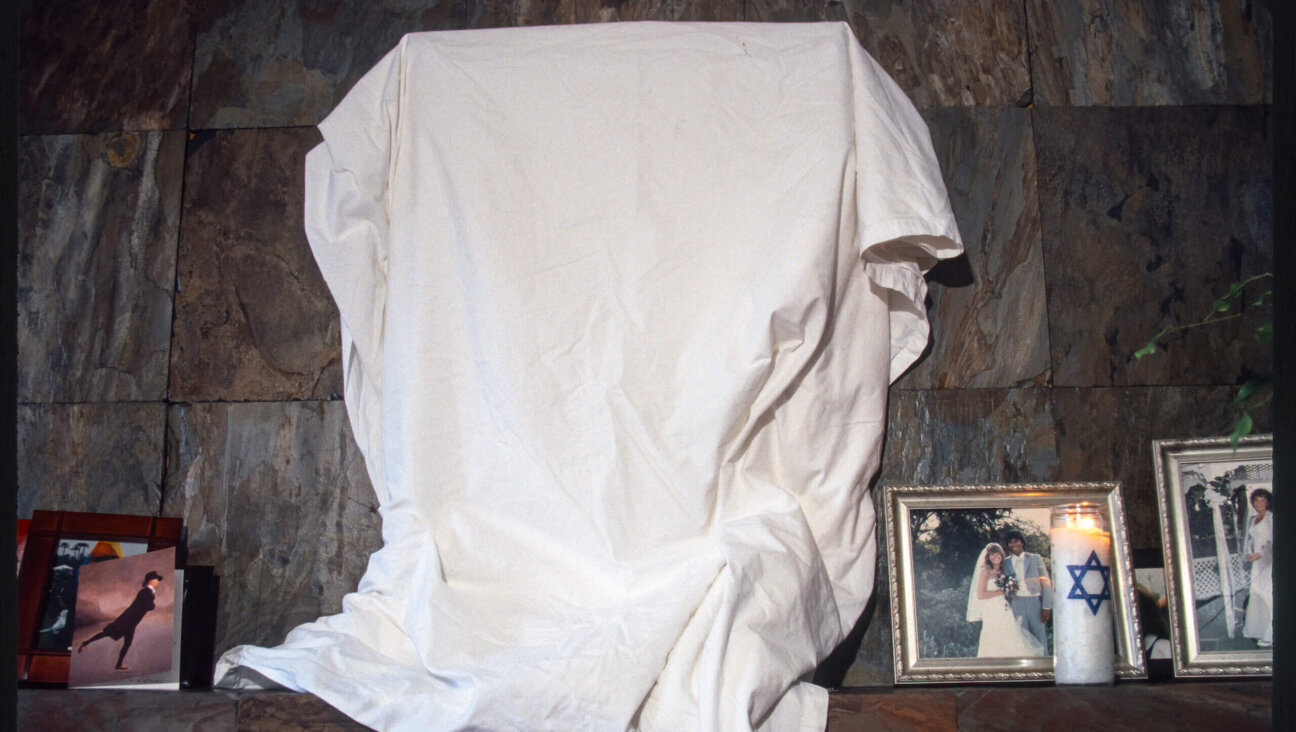Barbara Harshav Is First Hebrew And Yiddish Translator To Win Lifetime Achievement Award

Barbara Harshav Image by Twitter
Barbara Harshav, a translator of Hebrew and Yiddish literature, will receive this year’s prestigious PEN/Ralph Manheim Medal for Translation, given every three years to recognize an outstanding translator for lifetime achievement. Harshav is the first Hebrew or Yiddish translator to receive the award — and in the world of Jewish literature, Harshav’s win is being hailed as a major event.
Harshav has translated giants of Hebrew literature including Shmuel Yosef Agnon, winner of the Nobel Prize, and Meir Shalev, a major voice in Israeli fiction. Her translation of Yoram Kaniuk’s “Between Life and Death,” an autobiographical novel about the last four months of the writer’s life, was a finalist for the 2017 PEN Translation Award.
“Anyone who teaches Hebrew and Yiddish literatures in translation is indebted to Barbara Harshav,” said Adriana X. Jacobs, Hebrew translator and Associate Professor of Modern Hebrew Literature at Oxford. “Her translations have made the work of S.Y. Agnon, Leah Goldberg, Yehuda Amichai, Avrom Sutzkever, and so many others, available to our students, but they also teach us something vital about the possibilities of translation, how it reveals and multiplies new ways of reading a text.”
The Manheim medal has a storied history. Bernard Malamud and Gay Talese donated the initial funding for the award; it received additional support from the family and friends of Ralph Manheim, the American translator of “Mein Kampf,” who died in 1992, and it is now named after him.
The medal recognizes translators “whose career has demonstrated a commitment to excellence through the body of their work.” Prior winners include Gregory Rabassa, translator of “A Hundred Years of Solitude,” which Gabriel García Márquez famously declared superior to his original, and Edith Grossman, translator of “Don Quixote” and author of the influential book “Why Translation Matters.”
Harshav, also known as Bobbi, has published over forty books of translation including works of poetry, drama, fiction, philosophy, economics, sociology, and history, from Hebrew, Yiddish, French and German.
“I know that the Manheim Lifetime Achievement medal acknowledges the full range of Barbara’s work, including her translations from French and German, but the fact that this award casts the spotlight on Hebrew and Yiddish translation, languages that often are overlooked in the world literary economy, is just monumental,” Jacobs said. “But what also has impressed me about Barbara over the years is the sheer range of her translation activity, the many genres she has translated — novels, poems, essays, and short stories.”
“In all her translations, Barbara’s voice comes across so clearly and distinctly, even as she is capturing the qualities unique to a specific writer. And what I mean is that when you read Barbara’s translations, her commitment to her choices is evident. And every time I have heard Barbara speak on translation, this has been confirmed,” Jacobs said. “She can tell you why she made one choice and not another, why she chose to translate a particular text and not another, and she always — always — stands by her work.”
Part of the prestige of the Manheim is that the winner is chosen by active literary translators, who can recognize stellar work in the field.
“It is a special thrill to be recognized and rewarded by my peers,” Harshav told The Forward. “I’m very concerned about the quality control of translation and hope that this will improve the status and quality of Hebrew and Yiddish literature.”
The judges, members of the PEN Translation committee, cited Harshav’s “outstanding commitment to translation, and her body of work including Between Life and Death and Night Train to Lisbon.”
Harshav is the third woman to receive the Manheim medal in the 36 years it has been awarded; ten male translators have won.
“Like most of the highest-profile awards for literary translators, the Manheim Medal went only to men in the first two decades of its existence,” said Susan Bernofsky, a leading German-literature translator who directs the literary translation program at Columbia University. “It’s so encouraging to see women honored with this award now as often as men, which has been the case ever since Edith Grossman became the first woman Manheim medalist in 2006.”
“It’s crucial to the health of our field that the contributions of the great women artists among us be honored as consistently as those of their male peers,” Bernofsky said.
Harshav is a past president of the American Literary Translators’ Association (ALTA). Within the translation community, Harshav is known for her support and mentorship of translators and her commitment to the art of translation. (Many years ago, Harshav invited this columnist to her first-ever translation conference, through a kind email.) And sometimes, Harshav’s comments on writing and translation make it to Twitter, and have second lives there, like this snippet from her talk at Davidson College: “Style is the morality of the mind. And obscurantism is sinful.”
With her late husband, Professor Benjamin Harshav, Barbara Harshav published an anthology of American Yiddish poetry titled Sing, Stranger, as well as a translation of Sutzkever’s poetry and prose. Harshav also translated several books on the Warsaw Ghetto uprising, including the memoir of a ghetto fighter.
When Isaac Bashevis Singer’s son, Israel Zamir, wrote a memoir, Barbara Harshav translated it. The medal will be awarded at the ]PEN Literary Awards ceremony]( http://tickets.nyu.edu/single/psDetail.aspx?psn=7748) at NYU on February 20th. Other awardees include the novelist Edna O’Brien, who is also receiving a lifetime achievement award.
Aviya Kushner is The Forward’s language columnist and the author of “The Grammar of God” (Spiegel & Grau). Follow her on Twitter @AviyaKushner

I hope you appreciated this article. Before you go, I’d like to ask you to please support the Forward’s award-winning journalism this Passover.
In this age of misinformation, our work is needed like never before. We report on the news that matters most to American Jews, driven by truth, not ideology.
At a time when newsrooms are closing or cutting back, the Forward has removed its paywall. That means for the first time in our 126-year history, Forward journalism is free to everyone, everywhere. With an ongoing war, rising antisemitism, and a flood of disinformation that may affect the upcoming election, we believe that free and open access to Jewish journalism is imperative.
Readers like you make it all possible. Right now, we’re in the middle of our Passover Pledge Drive and we still need 300 people to step up and make a gift to sustain our trustworthy, independent journalism.
Make a gift of any size and become a Forward member today. You’ll support our mission to tell the American Jewish story fully and fairly.
— Rachel Fishman Feddersen, Publisher and CEO
Join our mission to tell the Jewish story fully and fairly.
Only 300 more gifts needed by April 30
























